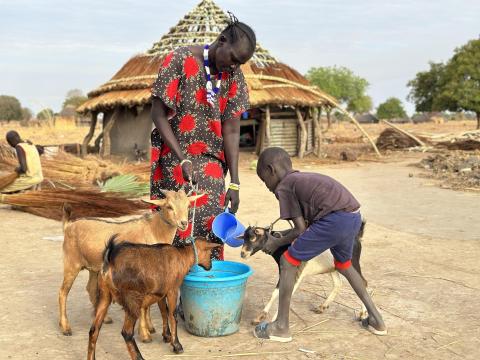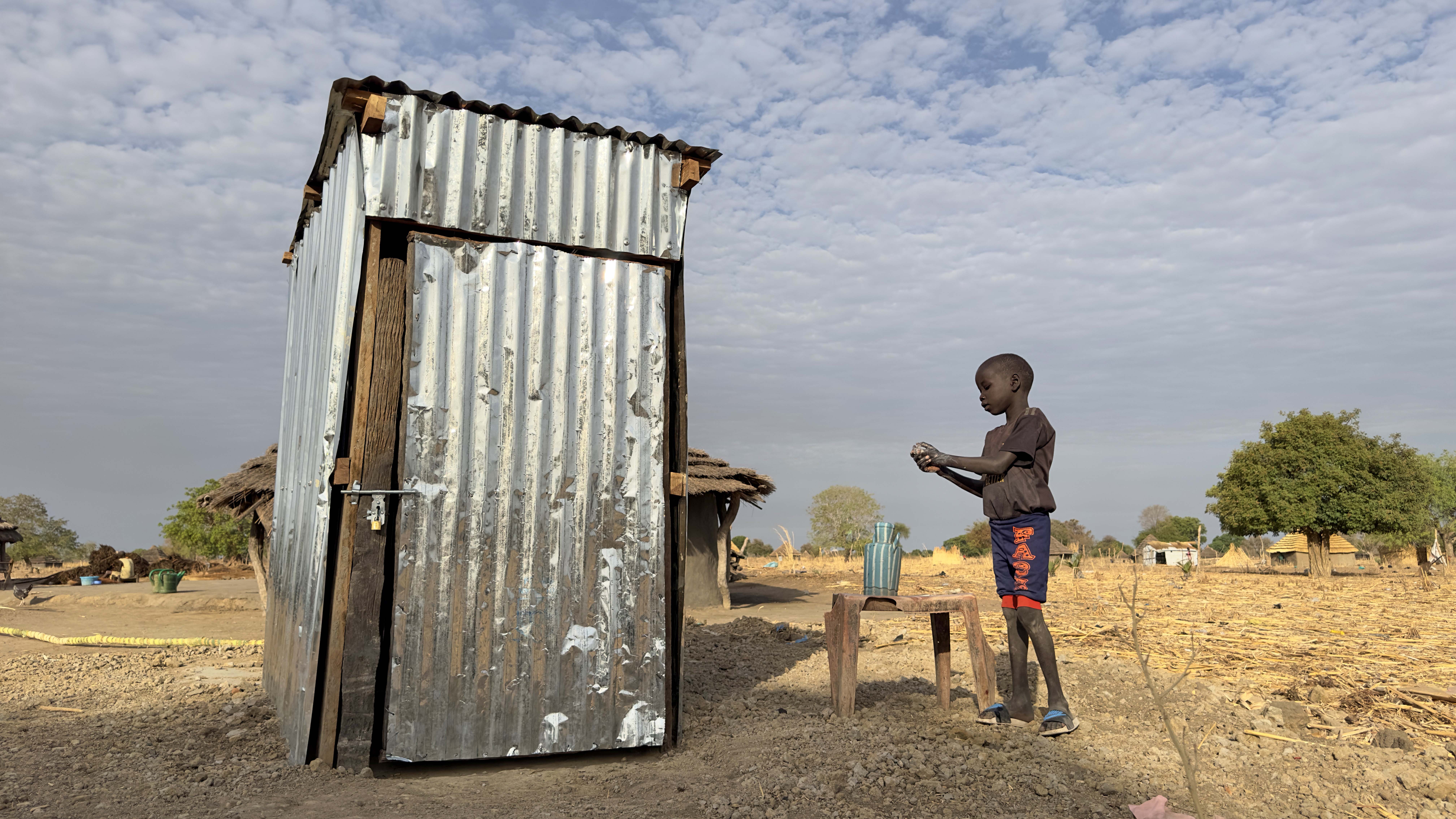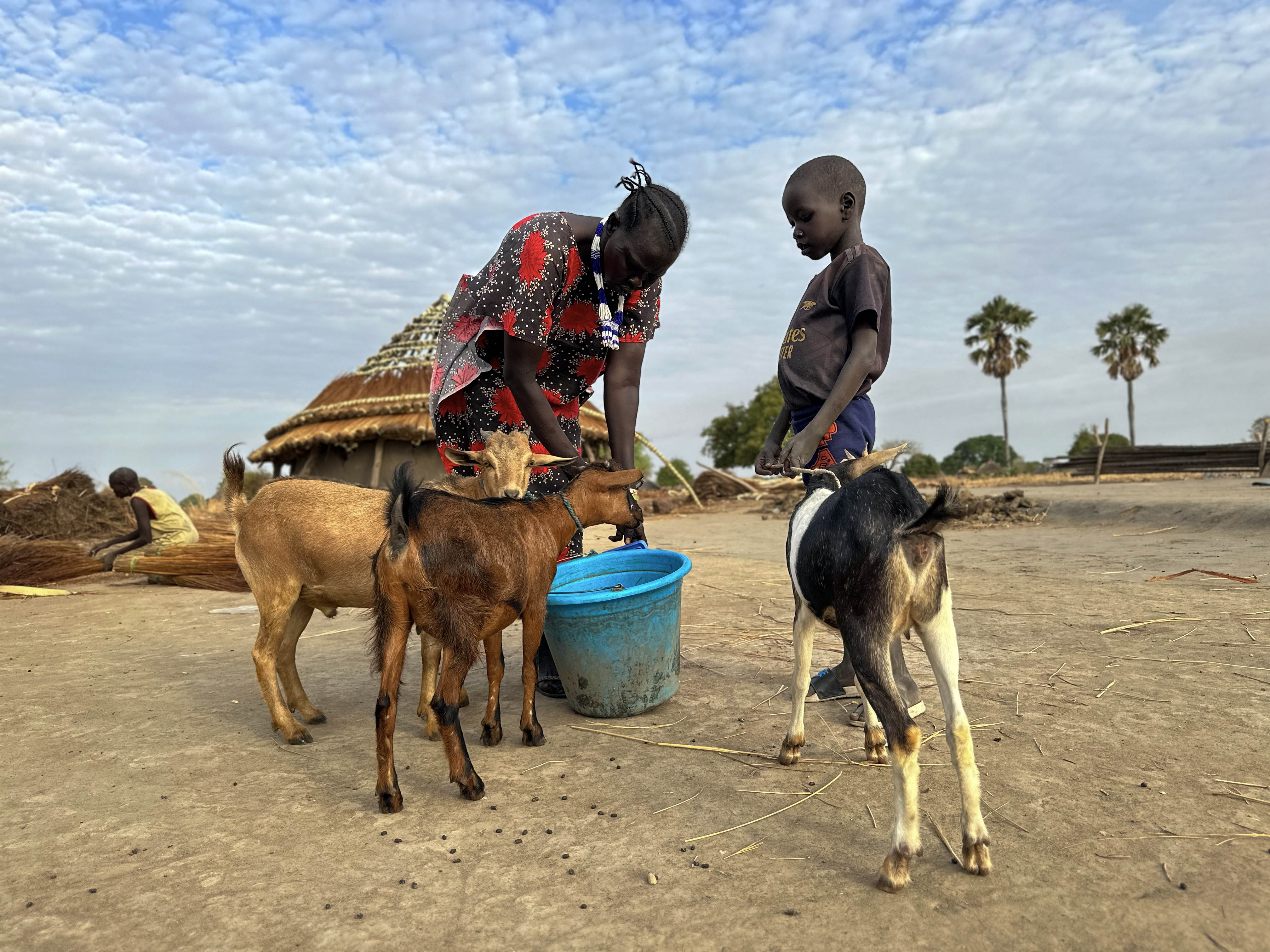Cash-for-work empowers communities in South Sudan and bolsters sustainable sanitation and hygiene practices

Proper sanitation and access to latrines continue to be a challenge in South Sudan. Open defecation remains prevalent in many parts of the country, including Warrap state. According to the country’s 2023 Humanitarian Response Plan released by UN OCHA in December 2022, with most of the country's population having no access to clean water and hygiene, children become more susceptible to infectious diseases and malnutrition. Communal conflicts and subsequent flooding further aggravate the situation, leading to massive displacements, food insecurity, and disease outbreaks, among others. However, the situation is starting to change. Thanks to World Vision and Global Affairs Canada's cash-for-work intervention, particularly on water, sanitation and hygiene (WASH), it plays a significant role in transforming communities.
Mothers like Akur Aken, 44, try to make a living and raise their children in their conflict and flood-affected village in Tonj North county in Warrap State. Sanitation was the least of their concern as they had bigger problems – like where to get money to buy food for their next meal, their children’s medication when they get sick, and their children’s school needs.
Akur was a great farmer, but her only source of livelihood and hope was shattered by the continued flooding in Warrap, making her life miserable. "I used to cultivate sorghum as a source of food, but I lost everything to the floods. So I resorted to brewing local alcohol and selling it to support my family. Still, one of my children got sick with diarrhea, so I had to spend all the money on treating him, leaving me with nothing to provide for the family or even pay for school fees," explains Akur.
According to Akur, she and her five children used to defecate in the bush during the day, and at night, they defecate near their home in fear of being attacked by wild animals. She said her neighbors also did the same.

To help families and people like Akur develop better lives, World Vision, with the support of Global Affairs Canada, identified 270 vulnerable households in Warrap State —120 in Gogrial East and 150 in Tonj North Counties. The identified households receive money under the theme "Cash for work activity.” With the money provided, they started income-generating activities and constructed emergency-shared pit latrines.
"World Vision provided them with construction materials like iron sheets, timbers, cement, and other working tools like wheelbarrows, and the overall goal was to create awareness in the community using the 270 constructed latrines as an example to trigger good hygiene and sanitation practices," explains Malith Mayen, the wash coordinator for the GAC project.
Akur is one of the people who received the support. "I bought food items and other basic needs like soap and clothes. I bought a goat with its kid at SSP 15,000 and constructed a pit latrine with the money,” explains Akur.
By December 2022, Akur’s pit latrine was ready to use, serving three other households, and by March 2023, Akur’s goat had produced another kid. As a result, Akur’s life and that of her neighbours are transforming, and now she lives with no worry that she or her kids will get sick often like before. Instead, she focuses more on raising her goats and other income-generating activities to support her and her school-going children."

“Since the construction of the pit latrine, our situation has improved. My family and my neighbours use this latrine. However, if the young ones defecate in the open area, we collect the feces and drop them in the latrine,” she adds.
She further explains, "From January until now, none of us fell sick, and I can now care for my children with the support I got from World Vision. For example, I sold one goat and paid my children's school fees for this term, so I am grateful for the generous support, and I will be happy forever.”
Story and photos by Joel Bebe/World Vision South Sudan